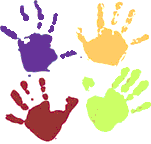Special Education and Communication Disorders, Department of

Department of Special Education and Communication Disorders: Faculty Publications
Document Type
Article
Date of this Version
2011
Citation
Assist Technol. 2011 ; 24(1): 56–66.
Abstract
Adults with acquired language impairments secondary to stroke, traumatic brain injury, and neurodegenerative diseases are candidates for communication supports outside of the traditional restoration-based approaches to intervention. Recent research proves repeatedly that augmentative and alternative communication (AAC) provides a means for participation, engagement, conversation, and message transfer when individuals can no longer expect full return of premorbid communication skills and that inclusion of communication supports should begin early. We discuss current research and future directions for integrated systems of technical supports that include low-technology, high tech, and partner-dependent strategies for adults with severe and chronic aphasia, cognitive-communication problems resulting from traumatic brain injuries, and primary progressive aphasia.


Comments
Copyright © 2012 RESNA